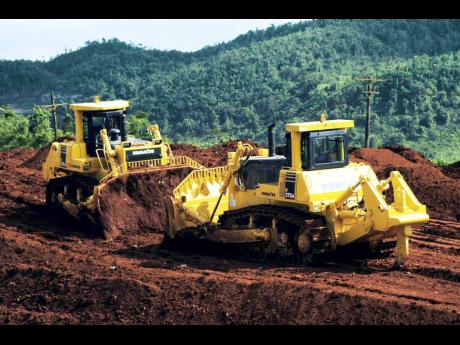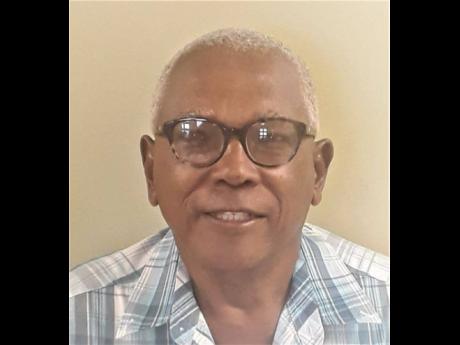Lance Neita | An injunction not only on mining but on huge chunk of economy
With the country reeling from the body blows by the recent upsets in the financial services sector, another mounting crisis looms from a recent Supreme Court ruling that restricts a bauxite mining company from achieving its projected targets.
The decision handed down on January 20 stunned the bauxite industry, with a stop order placed on Discovery Bauxite in St Ann to prevent it from mining in a special bauxite mining lease (173), a lease granted to the company from as far back as 2018.
The legal arguments against the company were brought by nine residents from the mining areas in St Ann who laid out a litany of prejudices, conjuring up bizarre images in the public psyche of a community totally decimated and left behind by a bully industry.
One can only speculate as to whether it is a coincidence that the language of the claims reflects the radical posture adopted by the anti-mining sector in their intense campaign against mining.
Leading up to this instance of the litigation, they have engaged in a type of extremist language to describe the bauxite industry and its employees as callous and uncaring, where health, livelihood, and communities are being ravaged by mining, where Jamaica earns only a dubious amount of foreign exchange from the industry and where the mining activity causes significant damage to personal and community welfare.
SHAPE PERCEPTIONS
The repetitive use of such hostile language is designed to shape perceptions in a negative framework that encourages the kind of emotional and sympathetic response blanking out any kind of reason or balanced approach to the issues raised.
The issues present serious matters to contend with. The imposition of the temporary stop order on the company has raised grave concerns locally and internationally regarding its potential negative impact on the country.
With the Planning Institute of Jamaica estimating that the goods-producing sector of the economy expanded in the fourth quarter 0f 2022 by 3.4 per cent, led by positive upturns from the mining and quarrying industry up almost 116 per cent, Finance Minister Nigel Clarke has clearly set his expectations on further increases in mining returns.
“Jamaica’s bauxite/alumina sector is of vital economic and developmental significance,” Clarke is quoted as saying in The Gleaner story of February 20. “The sector supports jobs, and in the past two years, has generated between US$300 -US$500 million in foreign exchange each year. In the past, foreign exchange earnings have been even higher.”
To put the industry’s importance into context, that “dubious amount of foreign exchange earned from the industry”, as one former Cabinet minister-turned-journalist prognosticates, in fact represents more than 50 per cent of Jamaica’s export earnings.
Now, as an observer and active participant in community and industry engagement over many years, I have always respected the environmentalists for their faith in what they believe is a just cause for environmental protection in instances where the industry is at fault.
Unfortunately, they seem to have resorted to the new media of style without substance while playing with the fancies of susceptible minds that get carried away with the romanticism of, for example, one of their favourite whipping posts, Cockpit Country.
PLANTED FIRMLY
The impression has been planted firmly in the minds of the impressionable that bauxite is being mined in the Cockpit Country. Yet the bauxite company and indeed all the relevant government agencies, including the Prime Minister’s Office, have repeatedly gone to great lengths to point out that no such thing exists, that mining takes place outside of the Cockpit Country Protected Area (over 76,000 hectares of land) as demarcated by the Government in 2017, and that there are no plans for any mining activities inside the cockpit country.
Nevertheless, the anti-mining lobby carries on, regardless, protecting their own delineated boundaries, claiming that mining will destroy the Cockpit Country’s heritage and underground water and forestry, among other impacts, in spite of evidence to the contrary.
From such contending arguments has come the call for dialogue and debate as there is an urgency about which bauxite matters ought to be treated in light of the industry’s 70-year continued contribution to the nation’s economic and social development.
Since its beginning in 1953, the company has championed cultural causes and brought to light many of the hidden gems of Jamaica’s heritage that would have been locked away without bauxite exploration and bauxite protective policies, for example, the stunning retrieval and preservation by Kaiser Bauxite’s Dr Jim Lee of over 37,000 artefacts of Taino civilisation comprising pottery, stone implements, and skeletal remains, collected from bauxite-bearing lands. It was during his pioneering field trips in the 1950s that he became interested in the archaeological and historical remains of Taino settlements he encountered across the island. In 2002, Dr Lee presented the University of the West Indies with one of the world’s largest and detailed collections for teaching and exhibition purposes.
HIDDEN CULTURAL TREASURES
The Lititz Mento Band from St Elizabeth, the Trysee Singers from St Ann, Cecil Baugh, the international master potter, the Kaiser Singers and the push-cart derby, are among those hidden cultural treasures that were unearthed by the mining companies while they mined for bauxite, and as the historians put it, “struck gold”.
The companies have always acknowledged the inevitability of dust escape under mining circumstances and offer documentary evidence to show that they has always responded to the existential needs of their partner communities where such is legitimate and justified.
What the country has not appreciated, and to a large extent misunderstood, is that the extraction of the ore mining activity at which the guns have been aimed is not all that there is to bauxite mining. At least not here in Jamaica.
Historically, from the opening of the bauxite landscape in the 1950s, the dynamic and holistic process of mining bauxite in Jamaica was never limited to excavation of the ore.
It was based on environmental considerations that engage world-leading standards of land reclamation after mining, a strong and uncontended history of partnership with farmers in the rural areas that make up bauxite operating areas, and expansive and comprehensive community=development programmes.
The injunction, in spite of its legalistic interpretations and best opinion, is a sentence not only on mining, but on a huge chunk of the national economy.
From all accounts, we are talking about a sector that contributes over US$500,000,000 each year into the economy, direct and indirect employment of 5,000 persons, with Discovery Bauxite alone pumping in US$80,000,000 in 2021.
As the country tries to understand the quandary it faces both in the global financial as well as investment circles, the Jamaica Environment Trust must show its ability as well as its intention to take responsibility for any fallout from their stated objective to eliminate mining without any concrete or feasible proposals for alternatives.
As Miss Lou’s Aunty Roachie used to say, “Back no know him a wear shut until shut drop off.”
- Lance Neita is a communications consultant and historian with years of working in the bauxite industry. Send feedback to columns@gleanerjm.com or to lanceneita@hotmail.com.


